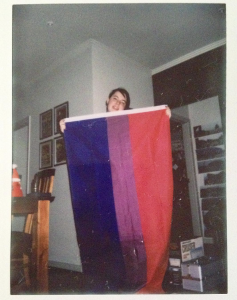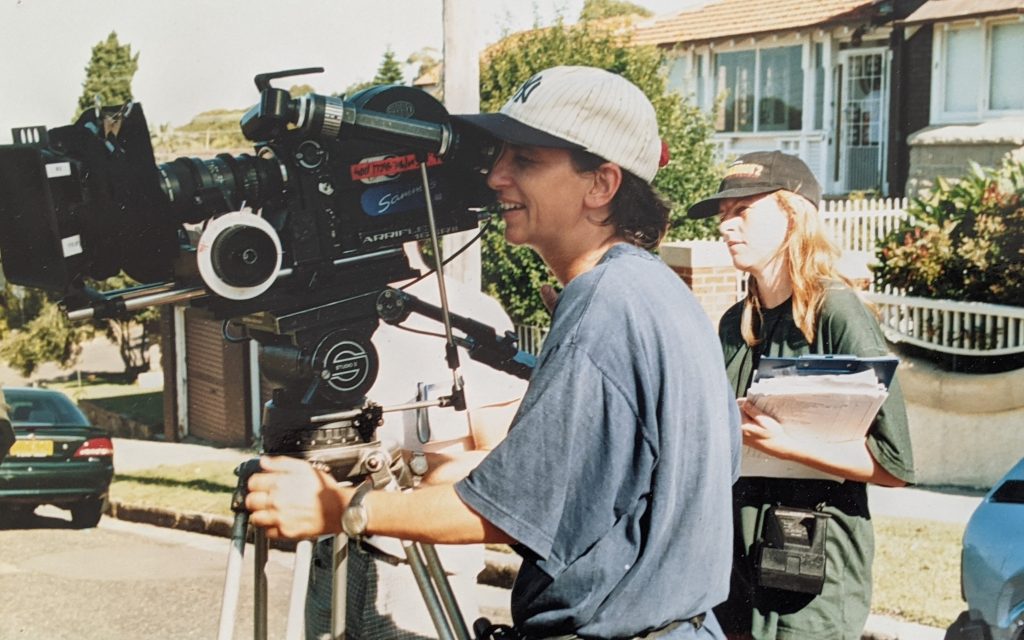The great discipline debate
The first episode of ABC’s new drama series, ‘The Slap’, has reignited the controversial debate on corporal punishment in Australia, HAYLEY BREWER reports.
What is the Issue?
THE controversial question of whether it’s okay to smack your kids as a means of discipline, has been an on-going debate for many decades. All parents have very strong and varied opinions on this subject.
In Australia, the issue resurfaced after the ABC Network screened a new eight-part drama series which premiered early this month. The show is based on a multi-award winning novel, written by Australian author, Christos Tsiolkas. The series, called ‘The Slap’ begins with a backyard BBQ with friends and family, when one of the characters slaps a misbehaving child, who is not his own. The show follows eight characters as they are forced to confront their morals and attitudes on the discipline of children.
This controversial series has its audience make their own decision on whom and effectively what they believe is right. Although the program is not about the issue of physically disciplining your own children, it certainly got Australia talking.
Who does it? And how common is it?
In the past, all cultures have had the right to discipline their children when they believe is appropriate. However, attitudes have changed since the 1950s and 60s, and since 1979, more than 29 countries have outlawed the domestic corporal punishment of children. In those countries which have not made parental corporal punishment illegal, the practice is still considered controversial.
In 2006 The Australian Childhood Foundation and the Child Abuse Prevention Research Australia at Monash University conducted a survey which interviewed a sample of 720 adults to discover Australia’s attitudes towards the physical punishment of children. The survey found that:
– 45% of respondents believed it was reasonable to leave a mark on a child as a result of physical punishment
– 1 in 10 thought it was appropriate to use implements such as canes, sticks, or belts to punish a child.
– 1 in 7 supported the use of the wooden spoon to discipline children
Only 41% believed that smacking a child is effective in shaping their behaviour and only 11% believed that smacking a teenager is an effective way of discipline. (www.childhood.org.au)
These attitudes show that the effectiveness of smacking is being questioned.
It is difficult to research a completely accurate answer to this question, however we do know from numerous studies all over the world that domestic corporal punishment is on the decline, although, there is still a large number of people who support this measure of discipline and believe they are due to raise their children however they see fit.
Why do people think it is okay?
Many parents justify their disciplinary actions by arguing that it is the only way to get through to their children, because they either don’t listen to warnings or don’t respond to any positive disciplinary measures.
Alice Coen is a 21 year old student from the ANU, who was smacked as a child. Alice plans on using the same means of discipline towards her children in the future.
“It always worked with me,” she said. “Whenever I was being rude I would get a smack, I knew straight away to behave and after a while mum would only have to threaten to smack me and I’d do what I was told. My dad was always a softie, he never hit me so I always knew that when mum was out I could pretty much do what I wanted and get away with it”.
Alice has grown up to respect both of her parents and has a loving relationship with them.
“There have been no psychological effects on me as a result of being smacked and it’s ridiculous to suggest that the two come hand in hand,” she said. “I will smack my kids but I’m not going to go crazy, I know the boundaries, I would never smack across the face or hit so hard that it left a lasting mark. You can agree with smacking as a form of discipline without being a child abuser.”
Does physical discipline leave lasting effects on a child?
Research suggests that the use of corporal punishment may lead to unhealthy outcomes for children. However, there is some debate about how well the research distinguishes between severe physical abuse and physical discipline, such as smacking.
According to the Australian Institute of Family Studies, research has shown that corporal punishment is effective in achieving immediate child compliance. However it is argued that the benefits associated with this can be offset by findings that indicate corporal punishment fails to teach children self-control and inductive reasoning. Instead, it teaches children to avoid engaging in misbehavior while in an adult’s presence (in contrast to teaching a child not to engage in the behaviour at all). In addition, corporal punishment teaches children that problems can be addressed through physical aggression.
What about hitting a child that isn’t your own?
Katherine Johnston, a pre-school teacher at Charnwood pre-school in Canberra, knows what it’s like working with other people’s children.
“Disciplining your own children is completely different to disciplining somebody else’s, especially when it comes to childcare,” she said. “We have policies and guidelines to abide to by. Some staff here consider it okay to smack their own children but they would never do it to a child that wasn’t their own. There is more than one way to get through to a child, and in my opinion, the answer is not physical. If another adult was to smack my child for misbehaving, well that’s abuse!”
As frowned upon as smacking your own child may be, it’s even more frowned upon to hit someone else’s.
“Even if it’s your niece or nephew, it’s just not your place!” Mrs Johnston said.
Where is the line between physical punishment and physical abuse?
The line differs in each person’s opinion, for instance, some may say that all physical discipline is abuse. A parent may see a smack across the face as a disciplinary action but a large number of people would consider it abuse.
How tolerant are we with the use of implements for the sake of discipline? To what extent does one tolerate marks or injuries to children as a punishment? Why is it okay to hit a child for doing the wrong thing when hitting an adult would be abuse? Hitting a child out of anger displays more of an abusive tendency than a disciplinary action, and all these things come into play when defining where the line is drawn.
In Australia, corporal punishment of children in the home is legal in every state and territory provided it is “reasonable”. Punishment that is “unreasonable” (E.g. punishment that causes harm to a child that lasts for more than a short period) may be classified as physical abuse and could lead to intervention by police or child protection authorities.





Be the first to comment!